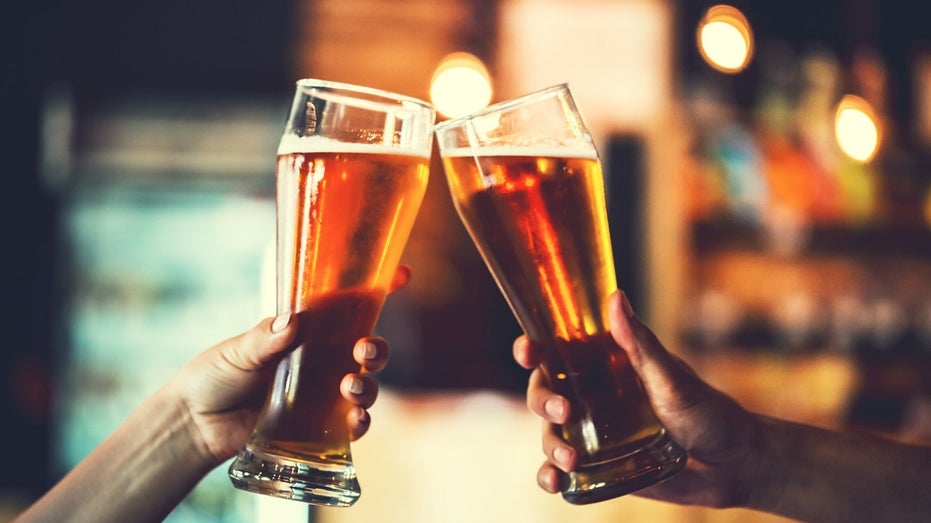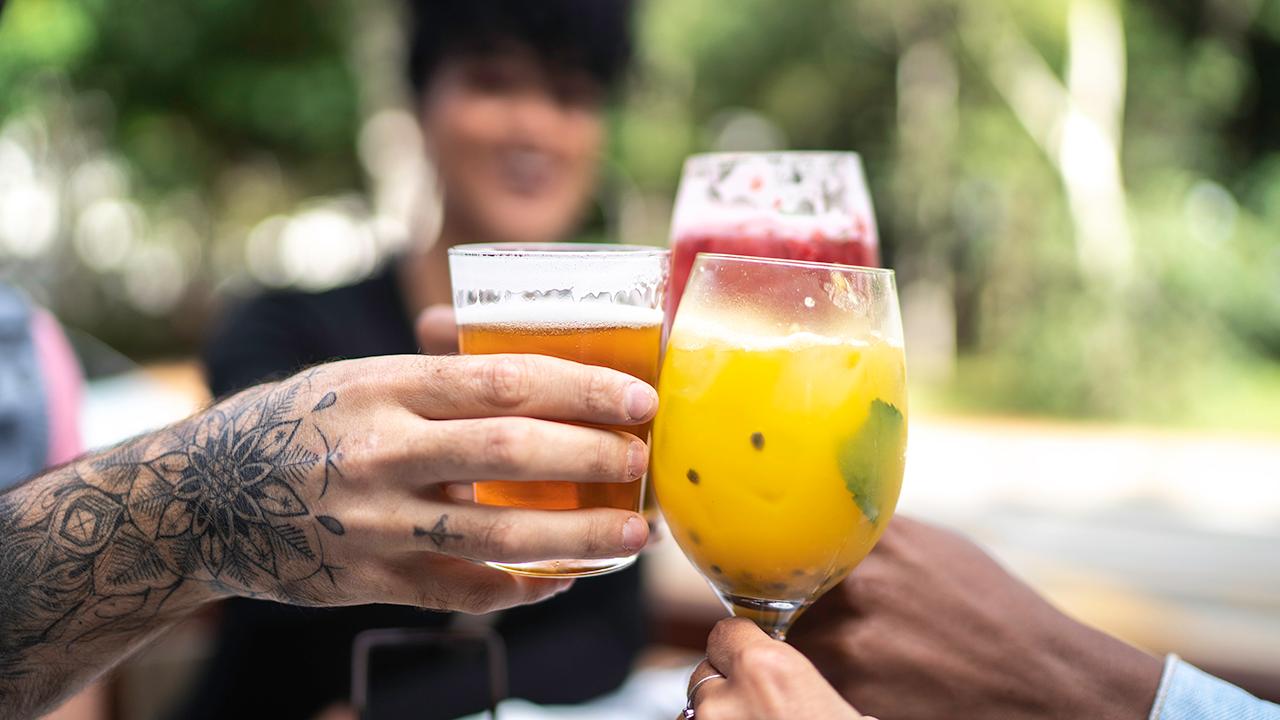Court calls hangovers an illness. Here's how much they cost employers
German court rules that hangovers are an illness
You can now call out of work if you have a hangover in Germany.
German courts ruled on Monday that hangovers are an illness — good news for Oktoberfest revelers enjoying the mammoth-sized steins filled with beer.
The Frankfurt judges made the decision after plaintiffs claimed a company offering anti-hangover "shots" and powders were making unlawful claims about stopping the after-effects of alcohol, according to DW.
"Information about a food product cannot ascribe any properties for preventing, treating or healing a human illness or give the impression of such a property," the court's statement said.

Two friends toasting with glasses of light beer at the pub.
But it might be bad news for businesses, which stand to lose a sizeable chunk when employees skip out on work because they’re hungover.
According to mixed survey data and U.S. Bureau of Labor Statistics analyzed by Motley Fool, hangovers hurt businesses’ bottom line, resulting in a staggering $41.8 billion in wasted salary. While big businesses may feel less pain from the absence of employees, small businesses are more likely to take a hit when workers use sick days to nurse a hangover.
On average, companies pay about $355 annually for hangovers per employee, according to research from the Delphi Health Group. Most workers used one paid vacation day a year because they drank too much, Delphi found, and two sick days.
That $355 price tag may seem small, but extrapolating to the nearly 157 million employed U.S. workers in 2018 (75 percent of whom said they went to work hungover), more than $41 billion in salary was spent on days nursing a hangover, according to Delphi.
"In fact," the study found, "the money spent paying employees who call in sick for a hangover could be detrimental to small businesses."
But there could be a silver lining for companies in Germany worried about the new law hurting their profitability. The study found that even when workers showed up feeling the effects of drinking too much the night before, they were less productive — working for only five hours of the day.
Instead, 46.3 percent of hungover workers pretended to work when they really weren’t, and almost 46 percent of the 1,000 respondents said they went to the bathroom an excessive number of times. Another 19 percent said they’ve actually taken a nap at work to help their hangover.





















